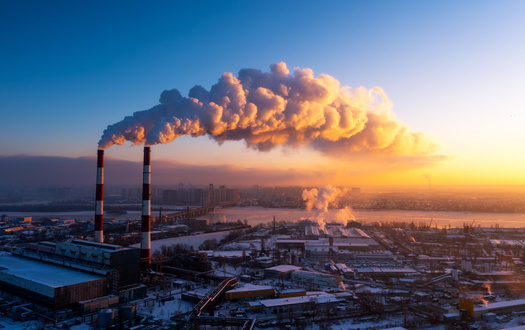
InsideClimatenews.org ranked U.S. Steel's Gary Works, in Gary, Indiana in 2022, as the largest greenhouse gas emitting iron and steel plant in the U.S. (Adobe Stock)
States are working to find solutions to make their air and water cleaner and safer for their communities but the path is not always clear-cut.
A case before the Supreme Court questions if states are doing as much as they can. The EPA Good Neighbor Plan demands 23 states reduce the amount of industrial facility smog over concerns the pollutants are contaminating nearby states.
Indiana is one of three states asking a Washington, D.C., circuit court to stop the plan from moving forward while the case is heard in lower courts.
David Van Gilder, senior policy and legal director for the Hoosier Environmental Council, expressed his disappointment his group and state legislators are not on the same page.
"Indiana unfortunately joined other Republican-led states in this unholy alliance with polluting industries to halt or stop or slow down the implementation of common-sense regulations that would prevent Indiana industries from hurting downstream people," Van Gilder noted.
According to the National Conference of State Legislatures, disagreements were raised when the EPA turned down plans by 21 states not to change their emissions. Van Gilder thinks it is bad public policy for the Supreme Court to agree to hear the case as an emergency before a decision is made in the lower courts.
In 2021, Indiana emitted 166 million metric tons of carbon dioxide, according to the U.S. Energy Information Administration. Van Gilder pointed out one rule with the EPA's Good Neighbor Plan required industries to maintain "health-based air quality standards," including using qualitative and quantitative measures needed to protect human health.
"We just like to see industries all around the country, deciding that they want to be good neighbors, rather than bad neighbors, which is what apparently, at least locally, the Ohio, West Virginia and Indiana Attorneys General think they want to be," Van Gilder observed. "They want to be bad neighbors rather than good neighbors."
Van Gilder found it troubling industries and power plants would rather pass the costs of proper facility operation on to vulnerable people whose health could be affected. The court is expected to make its decision by May 2026 but could decide whether to issue a temporary injunction within the next few months.
By Terri Dee, Anchor/Producer
